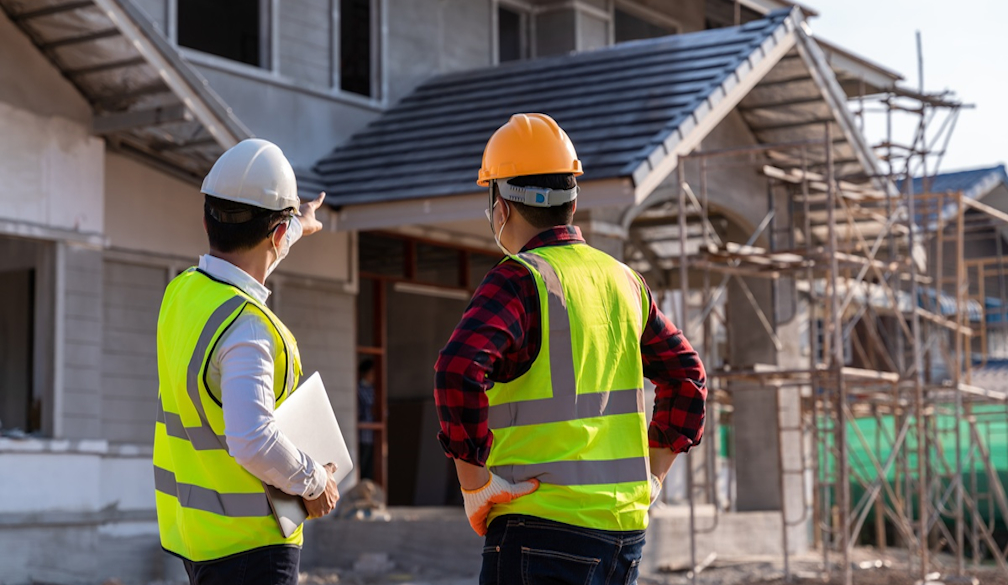New Home Inspections in Melbourne: A Guide for Buyers and Builders

Buying or building a new home is one of the biggest investments you’ll ever make, and ensuring that your investment is sound starts with a thorough new home inspection in Melbourne.
In Melbourne, where building regulations like the Building Act 1993 and Building Regulations 2018 are strictly enforced, an inspection ensures everything is up to scratch. For buyers and builders, this means every new home in Melbourne should meet stringent standards before being handed over.
To streamline the assessment process and enhance reporting accuracy, new home inspections in Melbourne increasingly rely on intuitive software for inspections that guides inspectors and simplifies client reviews.
Let’s break down everything you need to know about home inspections in Melbourne and why they’re indispensable.
Why a Home Inspection is Necessary Before Any Home Purchase or Construction
Here are some of the core reasons you can’t afford to skip a home inspection:
Ensuring Compliance with Melbourne’s Building Codes
Melbourne has some of the most comprehensive building codes in Australia, all designed to ensure that homes are not just beautiful but safe, durable, and energy-efficient.
These regulations are governed by the Building Act 1993 and Building Regulations 2018, which set stringent standards covering everything from materials to fire safety, accessibility, and sustainability.
Without a home inspection, there's no guarantee that the property you're eyeing complies with these laws. You could unknowingly be buying a property with subpar construction that doesn't meet Melbourne’s building codes, leading to costly repairs or even legal issues.
For new homes, a thorough inspection at various stages of construction ensures that everything is up to code. The builder must follow the agreed-upon plans and meet Melbourne’s stringent regulations, from electrical systems to water efficiency.
Without inspections during these key construction phases, you could end up with a home that’s far from what you bargained for, and that’s a huge financial risk for both the buyers and the builders themselves.
Avoiding Hidden Costs
A home inspection exposes any hidden issues that could cost you thousands of dollars to repair. While everything may seem perfect when you view the property, the underlying issues are often hidden from plain sight.
They could be anything from structural damage, faulty wiring, down to water leaks that haven’t yet caused visible signs of damage but will wreak havoc down the road.
When you identify these problems before closing the deal, you can avoid the shocking financial burden that comes with finding out these issues after you’ve already purchased the property.
Legal and Financial Protection
What a Home Inspection Typically Covers
Here’s a breakdown of what inspectors typically examine during a property inspection:
- Structural Integrity: When inspecting a home’s structure, the foundation, walls, roof, and floors are examined closely for any signs of damage. Cracks in the foundation or walls or sagging ceilings and uneven floors may point to serious issues like subsidence, which is when the ground beneath shifts and weakens the foundation.
- Plumbing and Electrical Systems: Inspectors check for leaks, corroded pipes, or faulty fixtures. On the electrical side, they examine switchboards, wiring and outlets to identify potential hazards or outdated systems that might fail to meet modern safety standards.
- Pest and Termite Activity: Melbourne's climate makes timber pest inspections essential, particularly for older homes. Termites can silently compromise a property's structural integrity, resulting in costly repairs if not caught early.
- Insulation and Ventilation: Inspectors check if the home is properly insulated to handle hot summers and cold winters, and if the ventilation is adequate to prevent dampness and mould. Poor insulation or ventilation can lead to high energy costs and health risks from mould growth, so it's important to ensure both are up to standard.
- Fire Safety Compliance: Smoke alarms, fire exits and other safety features are checked to ensure they meet local fire safety standards. This is non-negotiable for the safety of occupants.
- Exterior Features: Elements like roof tiles, gutters, driveways, fencing and outdoor areas are also scrutinised. Even seemingly minor wear and tear can lead to significant maintenance costs if left unattended.
The Inspection Process
Here’s how a typical inspection unfolds:
- Scheduling: Inspections are usually conducted between 8 a.m. and 3:30 p.m. The unpredictability of the process means exact times aren’t guaranteed, but inspectors often provide a rough timeframe.
- Site Access: For occupied homes, inspectors require permission to enter. For vacant properties, arrangements need to be made in advance to ensure access.
- Detailed Assessment: Inspectors thoroughly evaluate the property, documenting their findings with photographs, notes and, sometimes, video recordings.
- Report Delivery: Within a few days, you’ll receive a comprehensive report detailing the condition of the property, areas of concern, and recommended actions.
Common Issues Detected During Home Inspections
During an inspection, there are a few red flags that frequently show up, whether you're looking at an older home or a brand-new build.
Here are some of the most common issues inspectors find during these inspections:
- Cracks in the foundation or walls.
- Leaky pipes or plumbing issues.
- Faulty or outdated electrical wiring.
- Signs of water damage or mould.
- Termite damage or pest infestations.
- Poor drainage causing water pooling around the property.
- Uneven floors or sagging ceilings.
- Outdated or insufficient insulation.
- Broken or missing roof tiles.
- Faulty or non-compliant smoke alarms.
- Improperly installed or loose fixtures.
- Gutter blockages or damage.
- Cracked or broken windows and doors.
Wrapping up, both buyers and builders can largely benefit from building inspections. Contact a local company that specialises in new home inspection in Melbourne today and ensure every aspect of your property is free from hidden defects and structural issues.
Also Read: House Inspections: What to Expect and How to Prepare










